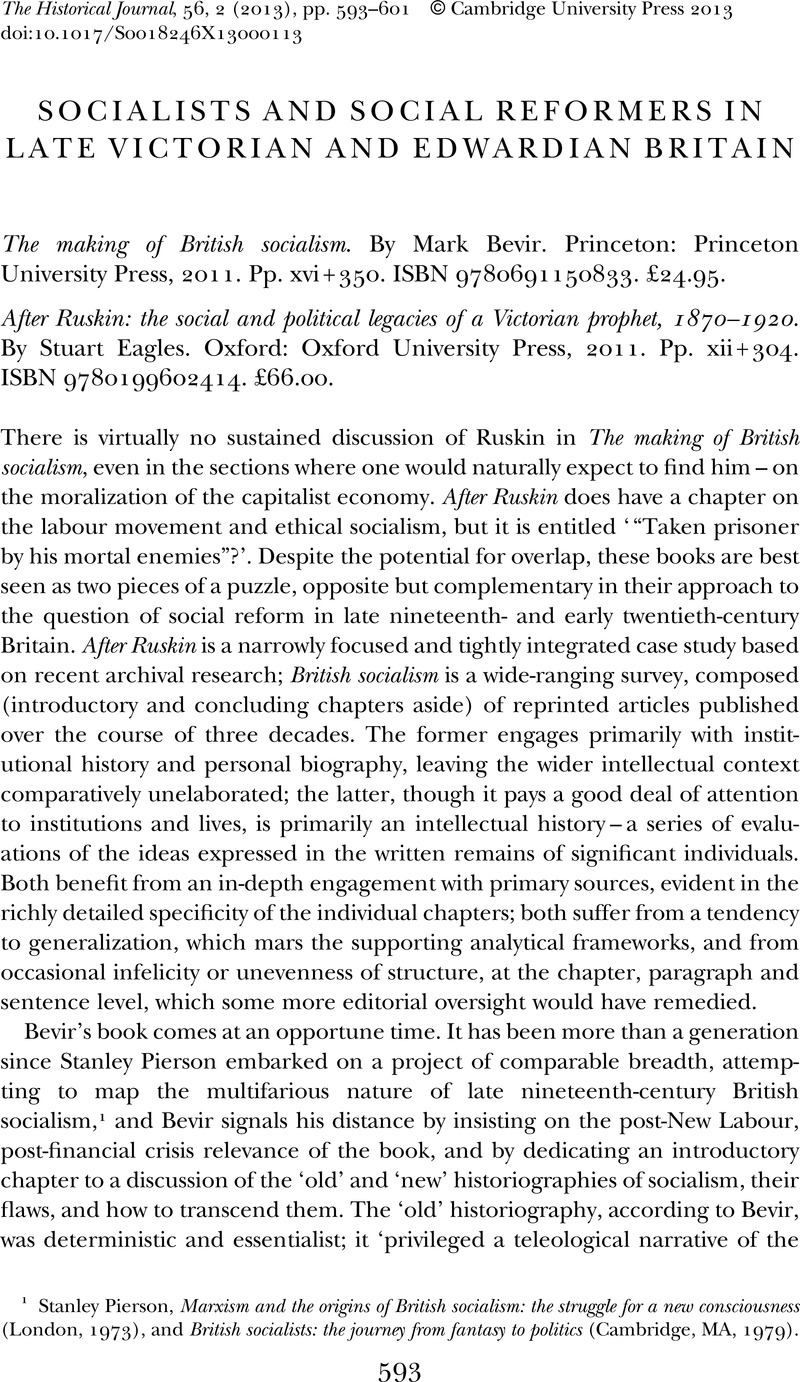No CrossRef data available.
Article contents
SOCIALISTS AND SOCIAL REFORMERS IN LATE VICTORIAN AND EDWARDIAN BRITAIN
Published online by Cambridge University Press: 03 May 2013
Abstract

- Type
- Review Articles
- Information
- Copyright
- Copyright © Cambridge University Press 2013
References
1 Pierson, Stanley, Marxism and the origins of British socialism: the struggle for a new consciousness (London, 1973)Google Scholar, and British socialists: the journey from fantasy to politics (Cambridge, MA, 1979).
2 Some recent scholarship remains unacknowledged, such as Livesey's, RuthSocialism, sex, and the culture of aestheticism in Britain, 1880–1914 (Oxford, 2007)CrossRefGoogle Scholar, Robertson's, MichaelWorshipping Walt: the Whitman disciples (Princeton, NJ, 2008)Google Scholar, the work of Vincent Geoghegan on socialism and religion, and of Caroline Sumpter and Deborah Mutch on the socialist periodical press, as well as some important books on key figures, such as Kinna's, RuthWilliam Morris: the art of socialism (Cardiff, 2000)Google Scholar. There is very sparse reference in the relevant sections to the large secondary literatures on late nineteenth-century communalism, anarchism, suffrage and New Woman writers.
3 See, for instance, Alexander's, JamesShaw's controversial socialism (Gainsville, FL, 2009)CrossRefGoogle Scholar.
4 See, for instance, Barrow, Logie and Bullock, Ian, Democratic ideas in the British labour movement, 1880–1914 (Cambridge, 1996)CrossRefGoogle Scholar; Manton, Kevin, Socialism and education in Britain, 1884–1902 (London, 2001)Google Scholar; Vaninskaya, Anna, William Morris and the idea of community: romance, history and propaganda 1880–1914 (Edinburgh, 2010)Google Scholar.
5 Far from being unable to ‘satisfy’ the ‘spiritual focus’ of the ethical socialists, Morris was one of the main sources of the ‘social gospel’ for ethical socialists of all kinds (p. 216), from the founders of the Socialist Sunday Schools, to ethical anarchists, to leaders of the ILP such as J. B. Glasier.


